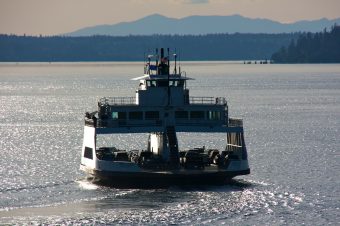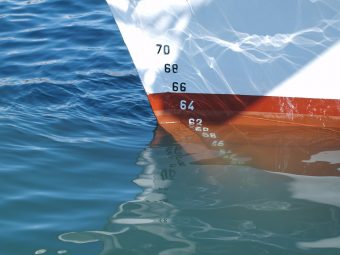
Thriving port cities and the vessels that serve them have been drivers of economic growth for decades, even centuries. Today the role played by ports and ferries in improving the environment of their home cities has become an increasingly significant topic in an era of climate-change concern. Thanks to technological advances such as electrified vessels, electrical propulsion systems and sustainably powered ship-to-shore charging, they are emerging as beacons of best practice in ‘smarter city’ thinking.
In the Unites States, for example, ABB technology is supporting Washington State Ferries, the largest ferry system in the country, in an ambitious program of achieving zero-emissions operation via a staged removal of diesel power from its fleet. From 2024, new ‘Olympic Class’ ferries, designed around hybrid-electric propulsion and a high-capacity energy storage system, will be introduced, each capable of carrying 144 cars and 1,500 passengers. Thanks to ABB’s Onboard DC Grid™ power distribution system and drive technology, the ferries will optimize the energy use on board, whether drawing on main engine power, operating in battery-only or in hybrid mode. Together, ABB’s technologies will contribute to significant reductions in greenhouse gas emissions and fuel use.
The introduction of the ferries is emblematic of Washington State’s 2050 goal to reduce emissions by 57.5 percent below 2019 levels, for the environmental benefit of the region. The combined fuel savings of this single project will be around 10 million gallons in 2040, with CO2 emissions expected to fall below 2050 reduction targets by 2034.
More:
Additionally, in Washington State, and increasingly around the world, shore power will be used to further reduce the environmental footprint of vessels – not only at sea, but also while they are stationary in often dense population centers. ABB shore connection technology enables the type of emissions-free ship power that regulators, ports and local residents increasingly demand.
This practice of so-called ‘cold ironing’, pioneered on the U.S. West Coast for cruise liners, is now widespread in Scandinavian countries and increasingly so across Europe, Japan and China, as well as other parts of the world. It prevents air pollution in ports and, supplied by sustainable electricity, enables ships to operate carbon-free. Earlier this year, the Port of Tallinn installed the latest ABB shore power systems on five of its piers in Old City Harbour as part of the first shore power project in Estonia, enabling vessels with shore power technology to draw on land-based power in port.

Ship operators and port authorities are starting to see shore power as an operational necessity. There is also a growing corporate social responsibility imperative to cut emissions. Increasingly, says Marcus Martelin, ABB Marine & Ports VP for Electric Services, electrical shore connection is regarded as a ‘must-have’, thanks the immediate environmental benefits conferred: “The key criterion for a shore connection installation has traditionally been payback time,” he says, “that is: how many hours a day a ship was tied up in port. But now port executives are measuring landside benefits on the basis of sustainable operation and commitments to the environment, with payback time lower among priorities.”
And soon, Europe’s busiest commercial waterway, and the ports it serves, will benefit from the direct application of emissions-reducing ABB maritime technology. From 2023, two super-size hybrid ferries will become operational on the cross-channel route between Dover, England and Calais, France. Their daily shuttle route, in one of the world’s busiest shipping lanes, will be reliant on the full scope of ABB integrated solutions, making it pivotal, therefore, to the sustainability ambitions of operator P&O Ferries.
The unique maneuverability advantages inherent to the Azipod® propulsion units on the two ferries will further benefit the harborside environment at each terminal: the units’ ability to swivel 360 degrees below the hull means the ferries will no longer have to perform complex about-turns at the end of every crossing. This capability alone will save a ton of fuel per trip, along with an associated reduction in noxious emissions.
“Moving towards a zero-emission future relies on technologies that meet the environmental and cost needs of today – and offer flexibility to integrate future energy sources in the years ahead,” says Juha Koskela, Division President ABB Marine and Ports.
Source: ABB



